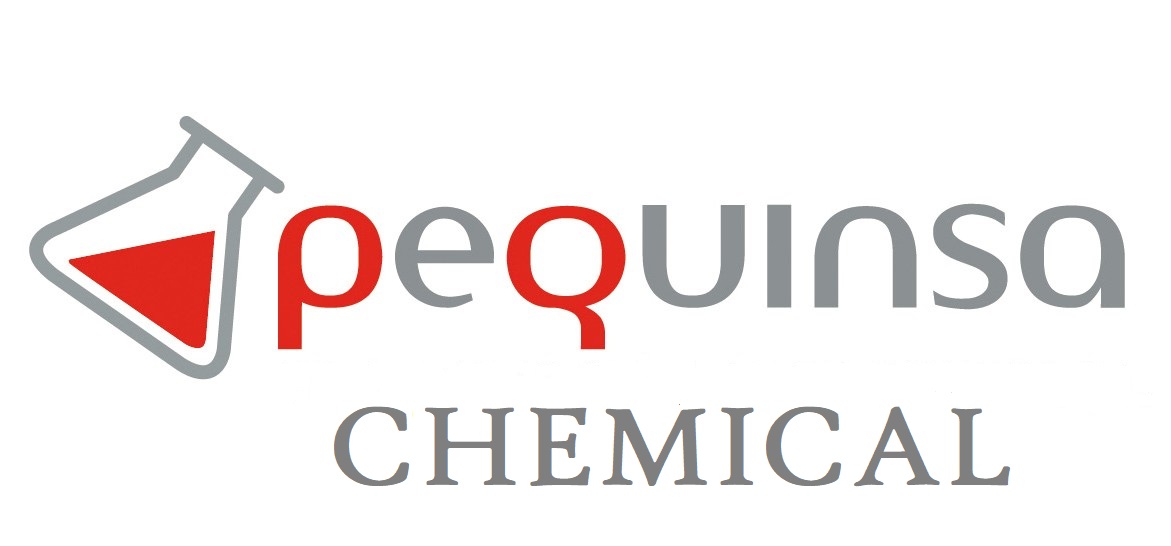-
Categories
-
Pharmaceutical Intermediates
-
Active Pharmaceutical Ingredients
-
Food Additives
- Industrial Coatings
- Agrochemicals
- Dyes and Pigments
- Surfactant
- Flavors and Fragrances
- Chemical Reagents
- Catalyst and Auxiliary
- Natural Products
- Inorganic Chemistry
-
Organic Chemistry
-
Biochemical Engineering
- Analytical Chemistry
-
Cosmetic Ingredient
- Water Treatment Chemical
-
Pharmaceutical Intermediates
Promotion
ECHEMI Mall
Wholesale
Weekly Price
Exhibition
News
-
Trade Service
This article is original by Translational Medicine.
Please indicate the source for reprinting.
Author: Ashley Guide: Reducing antibiotic resistance is a very important issue all over the world
.
A recent study found that an FDA (Food and Drug Administration) approved hepatitis C drug can increase the susceptibility of bacteria to antibiotics and reduce the possibility of antibiotic resistance
.
The hepatitis C drug telaprevir works by blocking the function of molecular chaperones in bacteria
.
A new study titled "An allosteric inhibitor of bacterial Hsp70 chaperone potentiates antibiotics and mitigates resistance" led by researchers from New York University was published on "Cell Chemical Biology" and found an FDA (Food and Drug Administration) approval The hepatitis C drugs can increase the susceptibility of bacteria to antibiotics and reduce the possibility of antibiotic resistance
.
The drug, called telaprevir, works by blocking the function of molecular chaperones (an important protein that can fold other proteins in cells) in bacteria
.
Tania Lupoli, assistant professor of chemistry at New York University and senior author of the study, said: “Telaprevir is the first clinically approved compound that has been shown to inhibit molecular chaperone function in bacteria
.
Our research marks the development of small molecular chaperone inhibitors.
An important step has been taken in terms of agents.
This inhibitor can be used in bacteria to increase the effectiveness of antibiotics and slow the evolution of antibiotic resistance
.
"Chaperones exist in almost every cell of every organism, from single-celled bacteria to humans
.
They are toxic in cells due to their key role in folding other proteins and what happens when the protein is misfolded
.
Molecular chaperones are the targets of ongoing drug discovery research, but researchers have been trying to find small molecules that can specifically target or bind to molecular chaperones
.
In this study, researchers tried to determine that they can shut down molecular chaperones in pathogenic bacteria Functional small molecules
.
They used Mycobacterium tuberculosis, the microorganism that causes tuberculosis, as the research object, and screened about 25,000 compounds—including 1,300 approved drugs—to identify small molecules that inhibit the molecular chaperones in Mycobacterium tuberculosis
.
They found an antiviral drug called telaprevir, which was approved by the FDA for the treatment of hepatitis C.
In a series of experiments using model mycobacteria in the laboratory, they proved that telaprevir binds to mycobacterial chaperones.
Blocks its ability to fold proteins
.
This makes mycobacteria more sensitive to antibiotics, including the commonly prescribed tuberculosis drug streptomycin
.
Molecular chaperones can also stabilize the protein that causes antibiotic resistance in cells, so the use of telaprevir to block the chaperone function decreases Reducing the resistance of mycobacteria to the first-line tuberculosis drug rifampicin (rifampicin)
.
In the United States and around the world, reducing antibiotic resistance is a major public health priority, because as the effectiveness of antibiotics decreases, more and more Infections (including tuberculosis) will become more and more difficult to treat
.
Lupoli said: “In the future, we envision that small molecule chaperone inhibitors can be used in combination with antibiotics to enhance the effectiveness of antibiotics and reduce drug resistance
.
"When researchers were excited to identify telaprevir as molecular chaperone inhibitors, they are continuing to explore hundreds of telaprevir analogs (compounds with similar molecular structures) to determine whether other compounds bind to molecular chaperones more tightly.
Research is a key factor in animal or clinical research
.
Future work will also explore how to target molecular chaperone inhibitors to only turn off certain molecular chaperones-for example, blocking molecular chaperones in bacteria rather than human cells
.
Lupoli said: "Our work contributes to a small but growing list of small molecules that block the function of molecular chaperones and contribute to ongoing research that telaprevir and its analogues can play a role when administered with antibiotics.
The role provides a promising way
.
"Other study authors include Jordan Hosfelt, Aweon Richards, Meng Zheng, Brock Nelson, and Amy Yang from the Department of Chemistry at New York University; Carolina Adura and Fraser Glickman from Rockefeller University; Allison Fay from the Sloan Kettering Institute; New York University Grossman Medicine William Resager and Beatrix Ueberheide of the hospital
.
Reference: https://phys.
org/news/2021-11-hepatitis-drug-antibiotic-potency-limits.
html Note: This article is intended to introduce medical research progress and cannot be used as a treatment plan Reference
.
If you need health guidance, please go to a regular hospital
.
Recommendation·Activity [Live] Twist Exome 2.
0, defining a new standard for exome sequencing.
Popular·Article Gut Microbiology [Nature] "What you eat is what you eat"-the evidence is found! Biomarkers that reveal how diet ultimately affects immunity through the gut microbiota [Cell Sub-Journal] Non-coding regions of the cancer genome-the discovery of new prognostic biomarkers Single cell sequencing [Cell] Using single cell sequencing technology to analyze recent 600,000 human cells, Ren Bing’s team draws an ultra-large-scale human genome single-cell chromatin accessibility map! Intestinal microbes [BMC sub-Journal] Open a new door to the treatment of gastrointestinal diseases-the discovery of microbiota Tumor research [Science sub Journal] Dr.
Feng Yang from Baylor College of Medicine and his team discovered that MAPK6 gene can promote cancer growth, and targeting MAPK6 provides an effective treatment strategy for cancer! Diseases and health [Cell News] Long-term large amounts of salt are harmful to health! Vigilance: Research reveals for the first time that a high-salt diet will cause trouble to the brain even if it does not increase blood pressure.
Tumor Research [Nature] Edible oil promotes cancer metastasis, and researchers are actively promoting clinical trials of the first new drug!
Please indicate the source for reprinting.
Author: Ashley Guide: Reducing antibiotic resistance is a very important issue all over the world
.
A recent study found that an FDA (Food and Drug Administration) approved hepatitis C drug can increase the susceptibility of bacteria to antibiotics and reduce the possibility of antibiotic resistance
.
The hepatitis C drug telaprevir works by blocking the function of molecular chaperones in bacteria
.
A new study titled "An allosteric inhibitor of bacterial Hsp70 chaperone potentiates antibiotics and mitigates resistance" led by researchers from New York University was published on "Cell Chemical Biology" and found an FDA (Food and Drug Administration) approval The hepatitis C drugs can increase the susceptibility of bacteria to antibiotics and reduce the possibility of antibiotic resistance
.
The drug, called telaprevir, works by blocking the function of molecular chaperones (an important protein that can fold other proteins in cells) in bacteria
.
Tania Lupoli, assistant professor of chemistry at New York University and senior author of the study, said: “Telaprevir is the first clinically approved compound that has been shown to inhibit molecular chaperone function in bacteria
.
Our research marks the development of small molecular chaperone inhibitors.
An important step has been taken in terms of agents.
This inhibitor can be used in bacteria to increase the effectiveness of antibiotics and slow the evolution of antibiotic resistance
.
"Chaperones exist in almost every cell of every organism, from single-celled bacteria to humans
.
They are toxic in cells due to their key role in folding other proteins and what happens when the protein is misfolded
.
Molecular chaperones are the targets of ongoing drug discovery research, but researchers have been trying to find small molecules that can specifically target or bind to molecular chaperones
.
In this study, researchers tried to determine that they can shut down molecular chaperones in pathogenic bacteria Functional small molecules
.
They used Mycobacterium tuberculosis, the microorganism that causes tuberculosis, as the research object, and screened about 25,000 compounds—including 1,300 approved drugs—to identify small molecules that inhibit the molecular chaperones in Mycobacterium tuberculosis
.
They found an antiviral drug called telaprevir, which was approved by the FDA for the treatment of hepatitis C.
In a series of experiments using model mycobacteria in the laboratory, they proved that telaprevir binds to mycobacterial chaperones.
Blocks its ability to fold proteins
.
This makes mycobacteria more sensitive to antibiotics, including the commonly prescribed tuberculosis drug streptomycin
.
Molecular chaperones can also stabilize the protein that causes antibiotic resistance in cells, so the use of telaprevir to block the chaperone function decreases Reducing the resistance of mycobacteria to the first-line tuberculosis drug rifampicin (rifampicin)
.
In the United States and around the world, reducing antibiotic resistance is a major public health priority, because as the effectiveness of antibiotics decreases, more and more Infections (including tuberculosis) will become more and more difficult to treat
.
Lupoli said: “In the future, we envision that small molecule chaperone inhibitors can be used in combination with antibiotics to enhance the effectiveness of antibiotics and reduce drug resistance
.
"When researchers were excited to identify telaprevir as molecular chaperone inhibitors, they are continuing to explore hundreds of telaprevir analogs (compounds with similar molecular structures) to determine whether other compounds bind to molecular chaperones more tightly.
Research is a key factor in animal or clinical research
.
Future work will also explore how to target molecular chaperone inhibitors to only turn off certain molecular chaperones-for example, blocking molecular chaperones in bacteria rather than human cells
.
Lupoli said: "Our work contributes to a small but growing list of small molecules that block the function of molecular chaperones and contribute to ongoing research that telaprevir and its analogues can play a role when administered with antibiotics.
The role provides a promising way
.
"Other study authors include Jordan Hosfelt, Aweon Richards, Meng Zheng, Brock Nelson, and Amy Yang from the Department of Chemistry at New York University; Carolina Adura and Fraser Glickman from Rockefeller University; Allison Fay from the Sloan Kettering Institute; New York University Grossman Medicine William Resager and Beatrix Ueberheide of the hospital
.
Reference: https://phys.
org/news/2021-11-hepatitis-drug-antibiotic-potency-limits.
html Note: This article is intended to introduce medical research progress and cannot be used as a treatment plan Reference
.
If you need health guidance, please go to a regular hospital
.
Recommendation·Activity [Live] Twist Exome 2.
0, defining a new standard for exome sequencing.
Popular·Article Gut Microbiology [Nature] "What you eat is what you eat"-the evidence is found! Biomarkers that reveal how diet ultimately affects immunity through the gut microbiota [Cell Sub-Journal] Non-coding regions of the cancer genome-the discovery of new prognostic biomarkers Single cell sequencing [Cell] Using single cell sequencing technology to analyze recent 600,000 human cells, Ren Bing’s team draws an ultra-large-scale human genome single-cell chromatin accessibility map! Intestinal microbes [BMC sub-Journal] Open a new door to the treatment of gastrointestinal diseases-the discovery of microbiota Tumor research [Science sub Journal] Dr.
Feng Yang from Baylor College of Medicine and his team discovered that MAPK6 gene can promote cancer growth, and targeting MAPK6 provides an effective treatment strategy for cancer! Diseases and health [Cell News] Long-term large amounts of salt are harmful to health! Vigilance: Research reveals for the first time that a high-salt diet will cause trouble to the brain even if it does not increase blood pressure.
Tumor Research [Nature] Edible oil promotes cancer metastasis, and researchers are actively promoting clinical trials of the first new drug!







